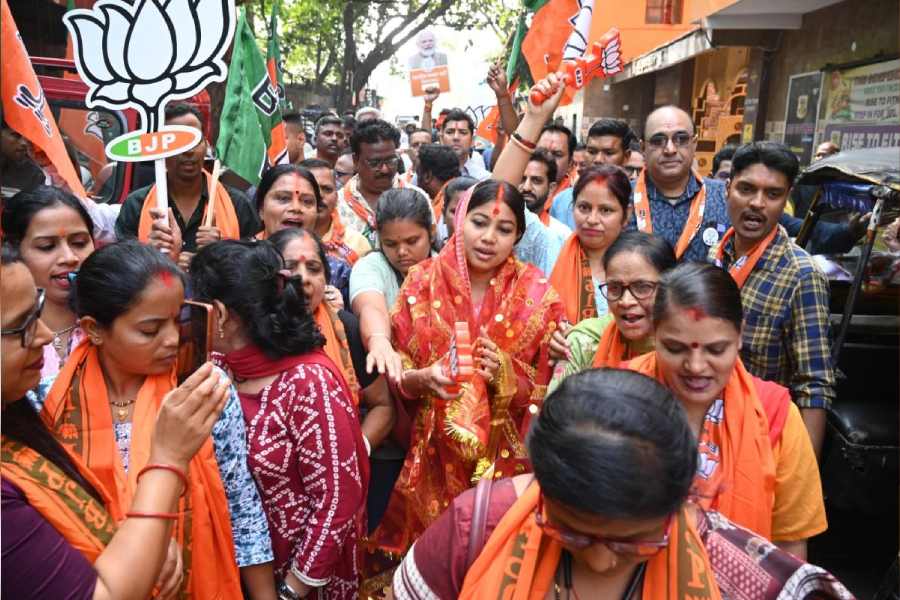The Jamshedpur East Assembly constituency is one of a handful of places in Jharkhand that enjoy uninterrupted power supply, quality piped water and road connectivity.
But some 5 lakh of its residents cannot claim ownership of their houses.
These people are spread around the city’s 86 “urban slums” — mostly middle-class colonies dotted with multi-storey houses. They or their ancestors had in the 1970s and 1980s encroached on land that the government had leased to Tata Steel but lay unused, and built the houses while the authorities and the company looked the other way.
Soon, the problem had become so big that successive governments balked at mass eviction. Nor could they set a precedent by legalising squatters.
Therefore, before every Assembly election like this one, the unresolved malikana haq (ownership right) is revived as an “issue”.
“We live in multi-storey houses with the best of civic facilities but can’t claim them as our own. Political leaders raise the issue during elections only to forget about it afterwards,” said Rahul Sinha, 28, a banker and resident of Baridih Basti.
Five-time MLA Raghubar Das, who later became BJP chief minister of Jharkhand, was the first to make it an electoral plank. He formed the Basti Vikas Samity and led an agitation in 1994-95 for the grant of ownership rights to the residents.
In 2018, with Das as chief minister, the Jharkhand cabinet notified that an illegal settler could get up to 10 decimals of land on lease for 30 years. However, the land could be used only to build a house and the settler must have been living at the site since before January 1, 1985. The lease was renewable but non-transferable.
“What’s the use of a lease whose renewal depends on the whims of the government of the day?” said Murli Rao, retired railway employee and Jemco resident.
Tapas Mitra, a senior advocate and Baradwari resident, said: “The erstwhile Bihar government leased the land to Tata Steel, and the residents encroached on it to build houses. It’s very difficult legally to give them ownership as that would amount to encouraging encroachment on government land.”
The seat is witnessing a triangular fight between the BJP’s Purnima Sahu (Das’s daughter-in-law), Ajoy Kumar of the Congress and BJP rebel Shiv Shankar Singh, contesting as an Independent.
Jamshedpur East had been a BJP citadel since the 1980s with the late Dinanath Pandey representing it thrice, followed by Das (1995 to 2014). In 2019, riding an anti-incumbency wave, BJP rebel Saryu Roy defeated Das (then chief minister) with tacitsupport from the RSS and the upper castes.
Kumar, a former Jamshedpur SP who had earned the moniker of “encounter specialist” in the 1990s while curbing gang warfare in the industrial hub, has promised to resolve the ownership issue at the very first cabinet meeting of a Congress government. He has not cited specifics.
“Kumar had a good tenure as MP and people respect him as a learned person (he is a medical graduate too). But Sahu has the advantage of the BJP’s big cadre base,” said Ranchi-based political columnist Sudhir Pal.
“Many BJP supporters are, however, resentful that after all its attacks on ‘dynasty politics’, the party has fielded a rookie just because she is Das’s daughter-in-law.”
Jamshedpur East votes on November 13










